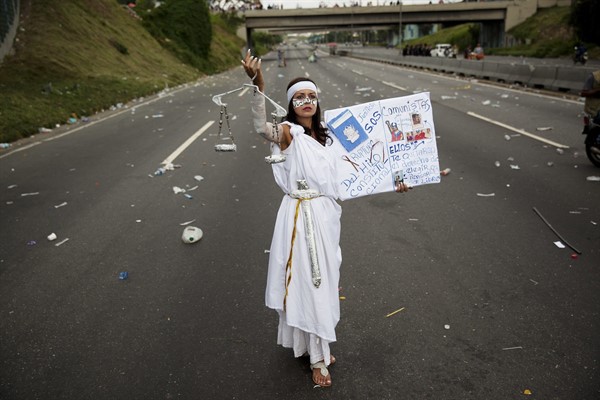If you ask young people what they want, the word that comes up most often is justice. Across the world, at all levels of governance, young people are fighting for social, economic and environmental justice—not just in the abstract sense of achieving equity, but also in seeking justice as an everyday, essential government service. But too often, these advocates have been let down by the police, courts and other institutions whose roles in society are to ensure and promote this justice.
In part, this is a story of neglect. In every country, justice systems are not equipped to deliver justice for most of their citizens. The Task Force for Justice—a group affiliated with the United Nations’ Sustainable Development Goals and chaired by Pakistani women’s rights activist Hina Jilani as well as ministers from Argentina, the Netherlands and Sierra Leone—found that in 2019, 1.5 billion people had a criminal, civil or administrative justice problem they could not resolve. Millions of people, therefore, are struggling to address issues like violent crime, eviction and family disputes and cannot get the help they need from their local governments.
It is also, however, a story of abuse. The United States is supposedly the world’s foremost defender of civil liberties and human rights. But according to the Council on Foreign Relations, “the United States far exceeds most wealthy democracies in killings by police, and officers seldom face legal consequences.” And this isn’t a problem that is unique to the United States. In South Africa, for example, police kill one person every 20 hours, while in Latin America, “The level of violence and extrajudicial executions [by police] is completely out of control,” as an Amnesty International researcher put it.

